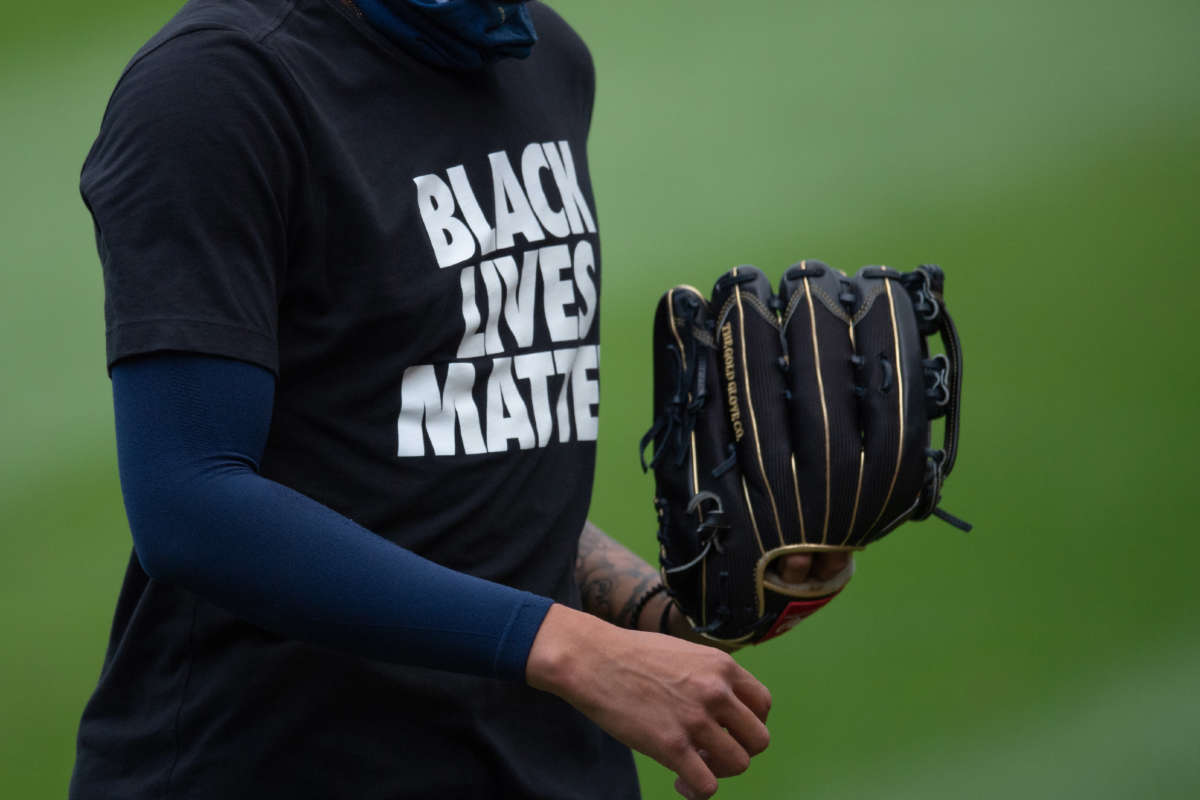The International Olympic Committee (IOC) this week reaffirmed a contentious rule that bans athletes from engaging in political speech or silent acts of protest, specifically stating that the phrase “Black Lives Matter” would be banned at this year’s games in Tokyo, Japan.
Taking a knee or lifting a fist in support of racial equality during the games would not be allowed, the IOC said. Athletes would also be barred from wearing shirts or other apparel with the phrase “Black Lives Matter” on them.
Details were scant on how protests or political actions may be punished, but athletes competing in the Olympics can face punishment from one or more of three separate bodies: the IOC itself, the governing body of their specific sport, and their home country’s Olympic committee.
The decision is based on the IOC reaffirming Rule 50 of the games, which restricts any type of “demonstration or political, religious or racial propaganda” by athletes at Olympic venues.
“The aim of Rule 50 is to ensure that each and every athlete can experience the Olympic Games without any divisive disruption,” the IOC’s website says.
The governing authority of the games based its choice to uphold Rule 50 in part on a survey it sent out to athletes and organizations, IOC Athletes’ Commission chief Kirsty Coventry explained, noting that a majority of responses were in favor of keeping the rule in place.
“I would not want something to distract from my competition and take away from that,” Coventry, herself a former Olympic athlete, added. “That is how I still feel today.”
Despite the survey that the IOC cited for making its decision, several sports organizations spoke out against it. Global Athlete, a progressive athlete start-up movement, took note of the survey in April and released a statement at the time decrying the idea that a person’s human rights might be determined by a vote.
“One cannot survey how people feel about human rights and freedom of expression,” said Global Athlete member Caradh O’Donovan, an Irish Karate athlete and a world champion kickboxer. “These types of surveys only empower the majority when it is the minority that want and need to be heard.”
Citing the Universal Declaration of Human Rights, Global Athlete added in its statement that “the Olympic podium is a media of communication to the world, and the Olympic frontier cannot be a barrier to human rights.”
Responding to the IOC’s decision, Brendan Schwab, executive director of The World Players Association, said that the organization would support athletes who still planned to protest. “Any athlete sanctioned at the Tokyo Olympics will have the full backing of the World Players,” Schwab said.
Some on social media accused the IOC of racism for its decision to take direct action against athletes who may have planned to highlight “Black Lives Matter” at the games.
The IOC “specifically deciding that Olympians can’t wear [Black Lives Matter] attire or ‘protest’ on the podium is for what reason other than racism?” asked Shahara’Tova Dente, an English instructor at the University of Alabama, in a tweet. “Seriously needing an answer as to why that was a necessary focus when the whole Olympics was postponed because of a damn pandemic.”
Color of Change, a racial justice organization, also condemned the decision by the IOC. Their policies “are a direct assault on the free expression of Black athletes by a commission that includes no Black members,” the group noted.
Media that fights fascism
Truthout is funded almost entirely by readers — that’s why we can speak truth to power and cut against the mainstream narrative. But independent journalists at Truthout face mounting political repression under Trump.
We rely on your support to survive McCarthyist censorship. Please make a tax-deductible one-time or monthly donation.
